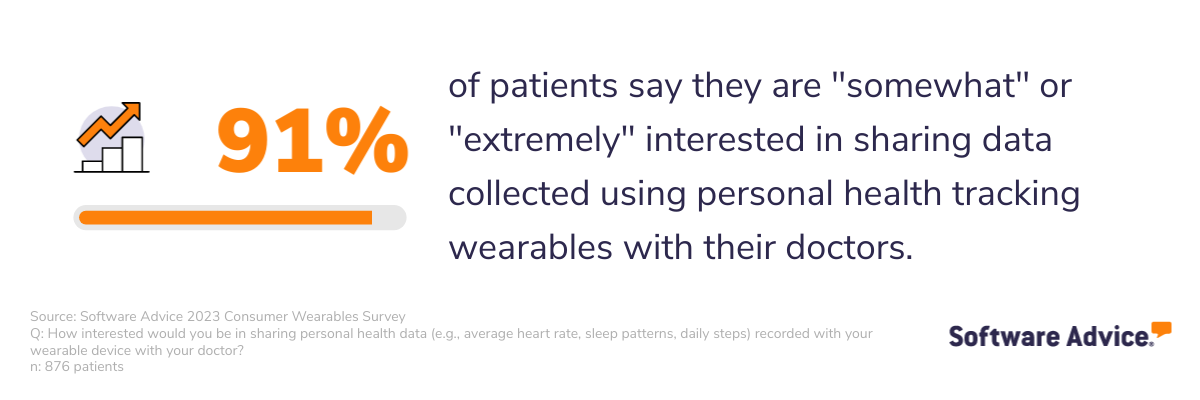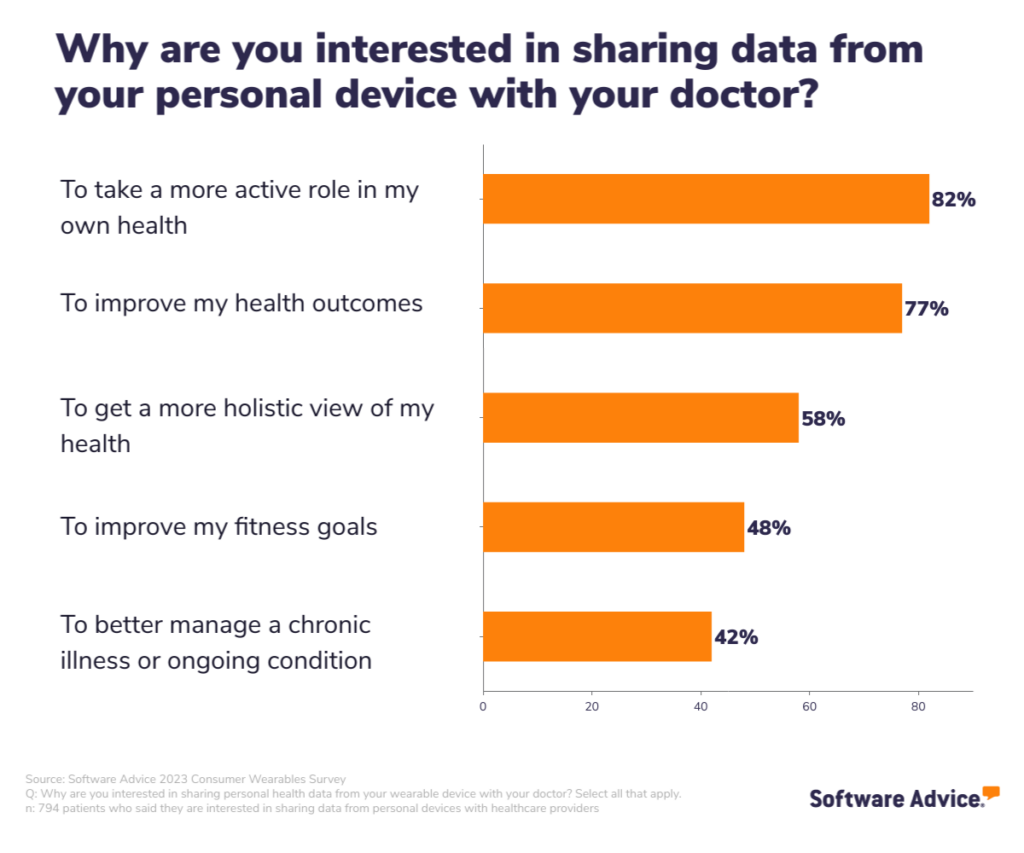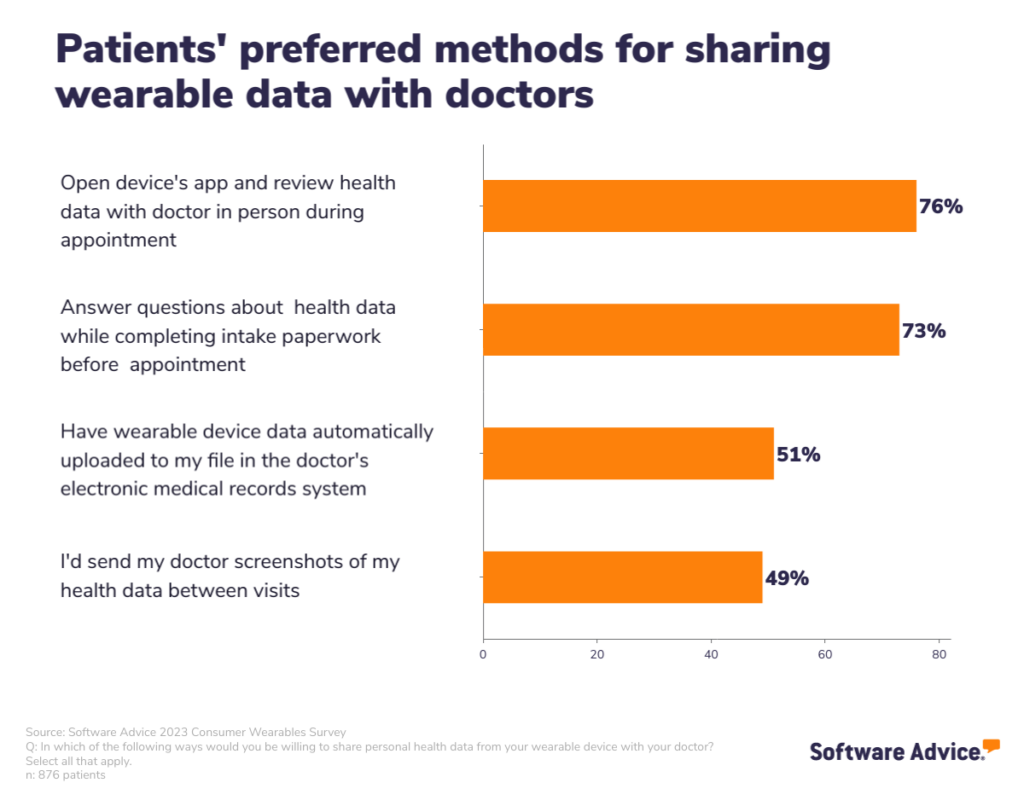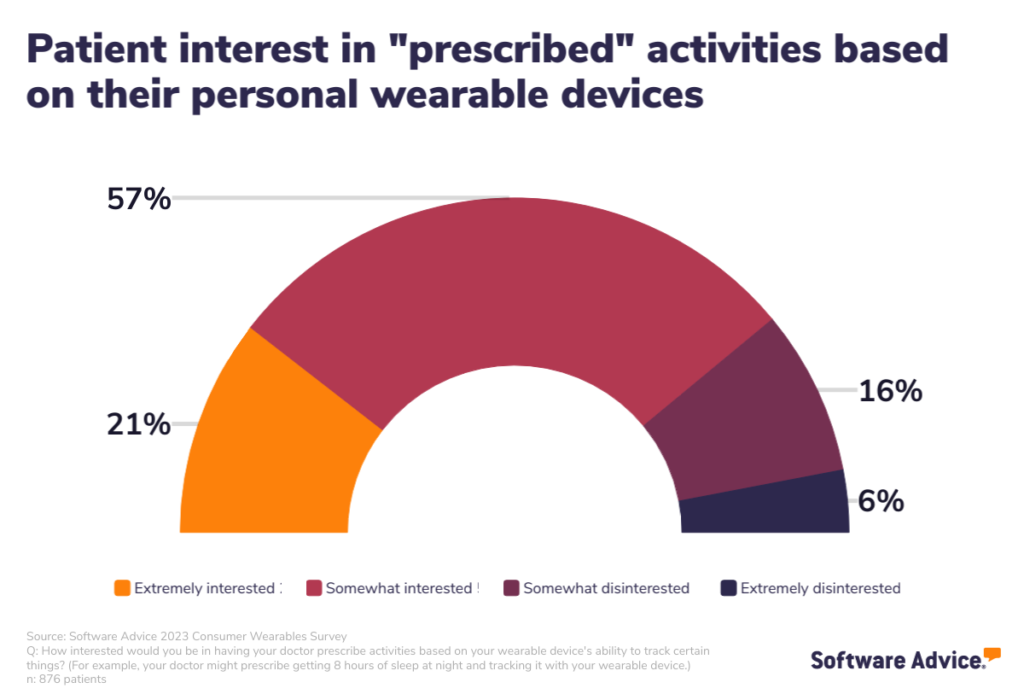“Do personal health trackers belong in the doctor’s office?” Software Advice wondered.
“Yes,” the company’s latest consumer survey found, details of which are discussed in a report published on their website.
Unique to this study is the patient sample polled: Software Advice surveyed 876 patients in September 2023 to gauge their perspectives on wearable tech and health. Note that the patient sample was limited to consumers who had seen a health care provider in the past two years and who also owned and used a personal wearable health device such as an Apple Watch or Fitbit.
Thus, the responses shared here were collected among a relatively more health-engaged consumer who has also been keen to use wearable health technologies in their approaches to self-care outside of the doctor’s office.
Among the key findings, Software Advice learned that,
-
9 in 10 patients (again, health-engaged wearable tech-adopters) were interested in sharing data from their devices with their physicians. This proportion of folks interested in sharing their wearable health data grew from 56% in 2021 to 91% in 2023.
-
The two biggest reasons patients look to share their data with physicians is to (1) take a more active role in their own care (for 82% of consumers) and (2) to improve their health outcomes (among 77%).
-
Nearly 9 in 10 patients would also be more likely to pick a physician who would take data from their wearable devices versus physicians who would not.

The top reason wearable health consumers would be interested in sharing data from their device to their doctor is to take a more active role in their health (82%), followed by improving health outcomes (among 77%).
Most of these health consumer would also like to get a more holistic view of their health, and nearly one-half, to improve their fitness goals.
42% would be keen to share data from their devices with doctors to better manage a chronic condition.

Here’s an important point about these wearable health-tech patients: that most (3 in 4 patients) would prefer to share their data with doctors in real-time, during their doctor’s appointment, or to answer questions about their health data when completing “paperwork” before that appointment.
One-half of these activated wearable consumers would prefer to share their data via an upload to their file in the doctor’s EHR system.
And, one-half would also prefer to send “screenshots” of their health data between visits.
So the shareable options run the gamut from screenshot to automatic upload to the EHR — a fascinating finding in this changing landscape.

Health Populi’s Hot Points: What continues to be an important value proposition with wearable tech in health care is the physician-prescriber relationship to which, clearly, most patients subscribe.
78% of the wearable-health tech patients would be most interested in “prescribed” activities based on what their wearable devices are seeing in peoples’ activities and health metrics.
This finding re-confirms and bolsters what past studies on digital health have found: that recommendations from clinicians rank high in patients’ minds to take more seriously than, say, a DTC ad or recommendation from a friend.
This also continues to remind us the primacy of (many) patients’ relationships with physicians or other trusted prescribers or health coaches. Wearable tech developers should take this point seriously, embedding user-centered design principles on both sides of the patient-physician relationship when it comes to data visualization, design, and actionable information.




 I'm in amazing company here with other #digitalhealth innovators, thinkers and doers. Thank you to Cristian Cortez Fernandez and Zallud for this recognition; I'm grateful.
I'm in amazing company here with other #digitalhealth innovators, thinkers and doers. Thank you to Cristian Cortez Fernandez and Zallud for this recognition; I'm grateful. Jane was named as a member of the AHIP 2024 Advisory Board, joining some valued colleagues to prepare for the challenges and opportunities facing health plans, systems, and other industry stakeholders.
Jane was named as a member of the AHIP 2024 Advisory Board, joining some valued colleagues to prepare for the challenges and opportunities facing health plans, systems, and other industry stakeholders.  Join Jane at AHIP's annual meeting in Las Vegas: I'll be speaking, moderating a panel, and providing thought leadership on health consumers and bolstering equity, empowerment, and self-care.
Join Jane at AHIP's annual meeting in Las Vegas: I'll be speaking, moderating a panel, and providing thought leadership on health consumers and bolstering equity, empowerment, and self-care.